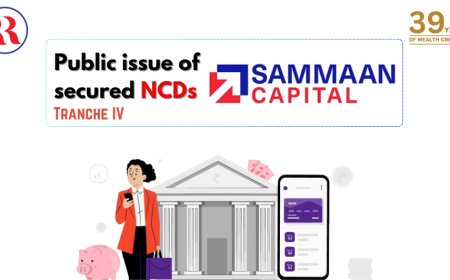How to Apply for Ews Certificate
How to Apply for EWS Certificate The Economically Weaker Sections (EWS) Certificate is a vital document issued by state and central government authorities in India to individuals who meet specific income and asset criteria, enabling them to access reserved quotas in educational institutions and government jobs. Introduced under the 103rd Constitutional Amendment Act of 2019, the EWS reservation pr
How to Apply for EWS Certificate
The Economically Weaker Sections (EWS) Certificate is a vital document issued by state and central government authorities in India to individuals who meet specific income and asset criteria, enabling them to access reserved quotas in educational institutions and government jobs. Introduced under the 103rd Constitutional Amendment Act of 2019, the EWS reservation provides a 10% quota for candidates from economically disadvantaged backgrounds who do not fall under existing Scheduled Castes (SC), Scheduled Tribes (ST), or Other Backward Classes (OBC) categories. Obtaining this certificate is not merely a procedural formality—it is a gateway to equitable opportunities in higher education and public employment. For millions of families whose incomes fall below the prescribed thresholds but who lack social reservation benefits, the EWS Certificate represents a critical mechanism for upward mobility. Understanding how to apply for the EWS Certificate correctly and efficiently can make the difference between accessing these benefits and being excluded due to administrative oversights or incomplete documentation.
This guide provides a comprehensive, step-by-step roadmap to navigate the EWS Certificate application process. Whether you are a student preparing for competitive exams, a job seeker applying for government positions, or a parent seeking educational benefits for your child, this tutorial ensures you are fully informed about eligibility, required documents, application methods, and common pitfalls to avoid. By following the best practices outlined here and leveraging the recommended tools and resources, you can significantly increase your chances of a successful and timely certification.
Step-by-Step Guide
Step 1: Determine Eligibility
Before initiating the application process, it is essential to confirm whether you meet the eligibility criteria set by the Government of India for EWS certification. The primary conditions are:
- Annual family income must be below ₹8 lakh per annum, calculated from all sources including salary, agriculture, business, and other income.
- The applicant and their family must not own or possess any of the following assets: five or more acres of agricultural land, a residential flat of 1,000 square feet or more, a residential plot of 100 square yards or more in notified municipalities, or a residential plot of 200 square yards or more in non-notified municipalities.
- The applicant must not belong to SC, ST, or OBC categories as recognized under existing reservation policies.
Family income includes the combined earnings of the applicant, their parents, siblings living with them, and spouse (if married). Income is assessed based on the previous financial year’s records. If you are unsure about your eligibility, calculate your total household income using salary slips, Form 16, bank statements, and income certificates issued by local authorities. Cross-reference this with the asset limits to ensure compliance.
Step 2: Gather Required Documents
Accurate and complete documentation is the cornerstone of a successful EWS Certificate application. Missing or incorrect documents are the most common reasons for rejection. The following documents are typically required:
- Identity Proof: Aadhaar card, Voter ID, Passport, or Driving License.
- Residence Proof: Electricity bill, water bill, rental agreement, or ration card with current address.
- Income Proof: Salary slips (last 6–12 months), Form 16, Income Tax Return (ITR) acknowledgment, or an income certificate issued by a Tehsildar or Municipal Officer.
- Asset Declaration: A self-declaration form stating that the family does not own agricultural land or residential property exceeding the prescribed limits. This may need to be notarized depending on state requirements.
- Community Certificate: A certificate confirming that you do not belong to SC, ST, or OBC categories. This is usually obtained from the local revenue office or caste certificate issuing authority.
- Passport-sized Photographs: Recent, color photographs with a white background, typically 2–4 copies.
- Application Form: Downloaded from the official state portal or obtained from the local Tehsil, Municipal Corporation, or District Collector’s office.
Always verify document requirements with your state’s official EWS portal or district administration office, as some states may require additional forms or affidavits. Keep digital and physical copies of all documents, as both may be needed during submission.
Step 3: Obtain and Fill the Application Form
The EWS Certificate application form is standardized across most states but may vary slightly in format. You can obtain the form in two ways:
- Online: Visit your state’s official revenue or social welfare department website. Search for “EWS Certificate Application” or “Income and Asset Certificate.” Download the PDF or fill out the online form directly.
- Offline: Visit your nearest Tehsil office, Municipal Corporation, District Collector’s office, or Common Service Center (CSC). Request a physical copy of the form and fill it out by hand or with a computer.
When filling the form, ensure the following:
- Use black or blue ink if submitting a handwritten form.
- Enter all details exactly as they appear on your Aadhaar or other identity documents.
- Provide accurate family income figures and asset declarations. False information may lead to disqualification or legal consequences.
- Sign the form in the designated space. Some states require a witness signature or notarization.
Double-check for spelling errors, missing fields, or inconsistent dates. A single error can delay processing by weeks.
Step 4: Submit the Application
Once the form and documents are complete, proceed with submission. Most states now offer both online and offline submission options. Choose the method that suits your convenience and accessibility.
Online Submission
To submit online:
- Register on your state’s revenue or citizen services portal (e.g., e-District, e-Services, or state-specific portals).
- Log in using your Aadhaar-linked credentials.
- Upload scanned copies of all required documents in PDF or JPEG format (ensure files are under 2MB and clearly legible).
- Fill the digital application form and submit.
- Save the application number and receipt for future reference.
Some portals generate an acknowledgment slip with a tracking ID. Use this ID to monitor your application status in real time.
Offline Submission
To submit offline:
- Visit the designated office—usually the Tehsil, Sub-Divisional Magistrate (SDM), or District Collector’s office.
- Submit the completed form along with photocopies of all documents. Carry originals for verification.
- Pay any applicable fee (most states do not charge, but some may levy a nominal fee of ₹10–₹50).
- Obtain a receipt with a unique application number and date of submission.
Always ask for a stamped acknowledgment receipt. If the office refuses to provide one, request a written confirmation or record the name of the officer and the time of submission.
Step 5: Verification Process
After submission, your application enters a multi-stage verification process. This typically includes:
- Document Verification: Officials cross-check your income and asset declarations with government databases such as Income Tax records, land revenue records, and bank statements.
- Field Verification: In some states, a government officer may visit your residence to verify your address and asset status.
- Community Status Confirmation: Authorities verify that you are not enrolled in any other reservation category by checking state caste databases.
This stage can take anywhere from 7 to 30 days, depending on the state and workload. You can track progress using your application number on the official portal or by visiting the office in person. Do not assume your application is rejected if there is no update within a week—delays are common.
Step 6: Receive the EWS Certificate
Upon successful verification, your EWS Certificate will be issued. The format and delivery method vary by state:
- Online: The certificate is available for download from the portal as a PDF with a digital signature and QR code for authenticity verification.
- Offline: You may be required to collect the certificate in person from the issuing office, or it may be delivered via post to your registered address.
Once received, verify the following details on the certificate:
- Your full name as per Aadhaar
- Parent’s name
- Address
- Income limit declared
- Issue date and validity period (usually 1 year)
- Official seal and signature
- QR code (if applicable)
If any information is incorrect, contact the issuing authority immediately to request corrections. Do not use an incorrect certificate for applications, as it may lead to disqualification later.
Step 7: Renewal and Validity
The EWS Certificate is typically valid for one financial year. If you plan to use it for the next academic year or job application cycle, you must renew it before it expires. Renewal follows the same process as the initial application:
- Update your income and asset details for the current financial year.
- Submit new documents, especially updated income proof (e.g., new ITR or salary slips).
- Apply well in advance—do not wait until the last minute.
Some states allow online renewal, while others require a fresh application. Keep a digital copy of your expired certificate for reference, as some institutions may ask for historical proof of eligibility.
Best Practices
Apply Early and Avoid Last-Minute Submissions
Many applicants delay their EWS Certificate application until they are filling out college or job forms, only to discover delays in processing. The verification process can take weeks, especially during peak seasons like admissions or recruitment drives. Begin the process at least 6–8 weeks before any deadline. Early submission also allows time for corrections if documents are rejected or additional information is requested.
Verify State-Specific Guidelines
While the central government sets the income and asset thresholds, each state has its own application process, form formats, and verification protocols. For example, Maharashtra requires a separate affidavit for asset declaration, while Tamil Nadu mandates a certificate from the Village Administrative Officer (VAO). Always consult your state’s official revenue department website before applying. Do not rely on third-party websites or social media advice.
Keep Digital and Physical Copies
Store scanned copies of all submitted documents, the application form, and the final certificate in multiple secure locations—cloud storage, email, and an external hard drive. Physical copies should be laminated or kept in a waterproof folder. Institutions may request original copies for verification even after you’ve submitted digital versions.
Ensure Income and Asset Declarations Are Accurate
Providing false information to obtain an EWS Certificate is a punishable offense under the Indian Penal Code. If discovered during verification or later during admission/job confirmation, your admission may be canceled, your job terminated, and legal action initiated. Be truthful in your declarations. If your income fluctuates, use the average of the last three years or the most recent verified income proof.
Use Official Portals Only
Many fraudulent websites and agents claim to expedite EWS Certificate issuance for a fee. These are scams. Only use government-recognized portals such as e-District, state revenue department websites, or Common Service Centers. Never share your Aadhaar password or OTP with anyone.
Follow Up Strategically
If your application status remains unchanged for more than 20 days, visit the issuing office in person. Carry your application receipt and ask for the status update. Politely request the name of the officer handling your case and follow up with them directly. Avoid aggressive behavior—cooperative persistence yields better results.
Prepare for Institutional Verification
Colleges and government employers often conduct their own verification of EWS Certificates. Keep your certificate accessible and be ready to provide additional documents such as bank statements or property records if requested. Some institutions may require you to appear in person for an interview or affidavit signing.
Tools and Resources
Official Government Portals
Each state operates its own digital platform for EWS applications. Below are the primary portals used across major states:
- Delhi: https://edistrict.delhigovt.nic.in
- Maharashtra: https://mahades.maharashtra.gov.in
- Uttar Pradesh: https://up.gov.in → e-District section
- Tamil Nadu: https://eservices.tn.gov.in
- Karnataka: https://edistrict.karnataka.gov.in
- Bihar: https://edistrict.bih.nic.in
- West Bengal: https://wb.gov.in → Revenue Department
These portals offer downloadable forms, status tracking, and frequently updated guidelines.
Common Service Centers (CSCs)
CSCs are government-authorized centers located in villages and towns across India. They provide digital services including EWS Certificate applications. Visit your nearest CSC to get assistance with form filling, document scanning, and online submission. CSC operators are trained to assist applicants without technical skills. A nominal service fee of ₹20–₹50 may apply.
Income and Asset Calculators
While official calculators are not always available, you can use free online tools to estimate your family’s annual income:
- Use Excel or Google Sheets to sum up monthly income from all sources and multiply by 12.
- Include bonuses, rental income, agricultural income, and business profits.
- Subtract any verified deductions such as professional taxes or insurance premiums.
For asset evaluation, use the following benchmarks:
- Residential property: 1,000 sq. ft. in urban areas, 200 sq. yd. in rural areas.
- Agricultural land: 5 acres or more disqualifies you.
Use Google Maps or local land records to estimate plot sizes if unsure.
Document Scanning and Storage Tools
Use free or low-cost tools to digitize documents:
- Adobe Scan or Microsoft Lens for high-quality PDF scans using your smartphone.
- Google Drive or OneDrive for secure cloud backup.
- Smallpdf or ILovePDF to compress large files under 2MB.
Always rename files clearly: “Aadhaar_JohnDoe.pdf”, “IncomeCertificate_2024.pdf”.
Legal and Advisory Resources
For complex cases (e.g., mixed family income, disputed property ownership), consult:
- Local legal aid clinics offered by State Legal Services Authorities.
- University counseling centers for students.
- Government helpline portals (not for calls, but for FAQs and downloadable guides).
These resources provide free guidance without charging fees.
Real Examples
Example 1: Ravi, a Student from Uttar Pradesh
Ravi, a 17-year-old from a small town in Uttar Pradesh, scored 87% in his Class 12 board exams and wished to apply for engineering colleges under the EWS quota. His father worked as a daily wage laborer, earning ₹18,000 per month. His mother earned ₹4,000 from tailoring. They owned a 700 sq. ft. house and no agricultural land.
Ravi calculated his family income: ₹22,000 × 12 = ₹2,64,000 per year—well below ₹8 lakh. He downloaded the EWS form from the UP e-District portal, filled it out, and uploaded his Aadhaar, income certificate from the Tehsil, and a self-declaration of assets. He submitted the application online and received an acknowledgment number. After 18 days, his certificate was approved and downloadable. He used it to secure admission in a government engineering college under the EWS quota, saving ₹3.2 lakh in tuition fees over four years.
Example 2: Priya, a Job Seeker in Maharashtra
Priya, 24, applied for a Group C government post in Maharashtra. Her family income was ₹7.5 lakh annually from her father’s small textile business and her mother’s pension. They owned a 1,200 sq. ft. flat in Pune. Priya realized her property exceeded the limit and immediately consulted a local legal aid center. She learned that only the residential property in urban areas above 1,000 sq. ft. disqualified applicants. Since her flat was exactly 1,200 sq. ft., she was ineligible.
She withdrew her EWS application and applied under the General category. She later learned that had she owned a 950 sq. ft. flat, she would have qualified. This case underscores the importance of precise asset measurement and understanding state-specific thresholds.
Example 3: Arjun, a Farmer’s Son in Bihar
Arjun’s family owned 4 acres of agricultural land and earned ₹6.8 lakh annually from farming and small retail. He applied for an EWS Certificate to pursue MBBS. His application was rejected because he owned agricultural land exceeding 5 acres? No—4 acres was within limit. However, he failed to submit an income certificate signed by the Block Development Officer (BDO). He resubmitted with the correct document and received his certificate within 12 days. He later secured a seat in a government medical college under EWS reservation.
Example 4: Meena, a Widow in West Bengal
Meena, a widow with two children, earned ₹4,500 monthly from stitching and received ₹2,000 monthly in government pension. She lived in a 500 sq. ft. home and had no other assets. She applied for an EWS Certificate for her daughter’s engineering admission. She visited her nearest CSC, where the operator helped her fill the form and scan documents. Her application was processed in 10 days. The certificate was delivered by post. Her daughter secured admission under EWS and received a scholarship.
FAQs
Is the EWS Certificate valid across all states in India?
Yes, the EWS Certificate issued by any state government is valid nationwide for central government jobs and institutions. However, for state-specific jobs or educational institutions, you may need to apply for a certificate from the state where you are applying, as some states require local verification.
Can I apply for an EWS Certificate if my family income exceeds ₹8 lakh in one year but is below it in others?
The income criterion is assessed based on the immediately preceding financial year. If your income exceeded ₹8 lakh in the last financial year, you are not eligible, even if your current income is lower. You must wait until your income falls below the threshold for a full financial year before reapplying.
Do I need to submit a new EWS Certificate every year?
Yes. The certificate is valid for one financial year. You must renew it annually by submitting updated income and asset proof. Some institutions may accept a certificate issued in the previous year if it is still within its validity period at the time of application.
Can I apply for EWS Certificate if I am employed?
Yes. Employment does not disqualify you. Your income as an employee is included in the family income calculation. If your total family income is below ₹8 lakh and you meet the asset criteria, you are eligible.
What happens if I submit false information?
Submitting false income or asset information is a criminal offense under Section 420 of the Indian Penal Code. If discovered, your EWS Certificate will be canceled, your admission or job may be revoked, and you may face prosecution. Always declare accurate information.
Can I apply for EWS Certificate if I belong to a minority community?
Yes, provided you do not belong to SC, ST, or OBC categories and meet the income and asset criteria. Minority status does not affect EWS eligibility. EWS is purely based on economic status, not religion or community.
How long does it take to get an EWS Certificate?
Processing time varies by state and application volume. Typically, it takes 7 to 30 days. Online applications are often faster. If you haven’t received your certificate after 45 days, visit the issuing office with your application receipt.
Can I apply for EWS Certificate if I am a non-resident Indian (NRI)?
No. EWS Certificate is only available to Indian citizens residing in India. NRIs are not eligible for EWS reservation in India.
Do I need to pay a fee to apply for an EWS Certificate?
In most states, there is no fee. Some may charge ₹10–₹50 for processing or printing. Be cautious of anyone demanding large sums—it is likely a scam.
Can I use my EWS Certificate for multiple applications?
Yes. Once issued, you can use the same certificate for multiple purposes—college admissions, competitive exams, government job applications—as long as it is valid. Keep digital and physical copies ready.
Conclusion
Applying for an EWS Certificate is a straightforward process when approached with preparation, accuracy, and patience. It is not a privilege reserved for the well-connected—it is a right guaranteed by constitutional amendment to those who need it most. By understanding the eligibility criteria, gathering the correct documents, submitting through official channels, and following up diligently, you can secure this critical document without unnecessary delays or stress.
The EWS Certificate is more than a piece of paper—it is a tool of social justice, enabling families who have worked hard but lacked structural advantages to compete on a more level playing field. Whether you are a student aiming for a medical seat, a graduate seeking a government job, or a parent striving for your child’s future, this certificate can be transformative. Do not underestimate its power, and do not let bureaucratic hurdles deter you.
Remember: accuracy beats speed, verification beats assumptions, and persistence beats procrastination. Use the tools, follow the best practices, learn from real examples, and never hesitate to seek official guidance. With the right approach, your EWS Certificate is within reach—and with it, the opportunity to build a better future.




























